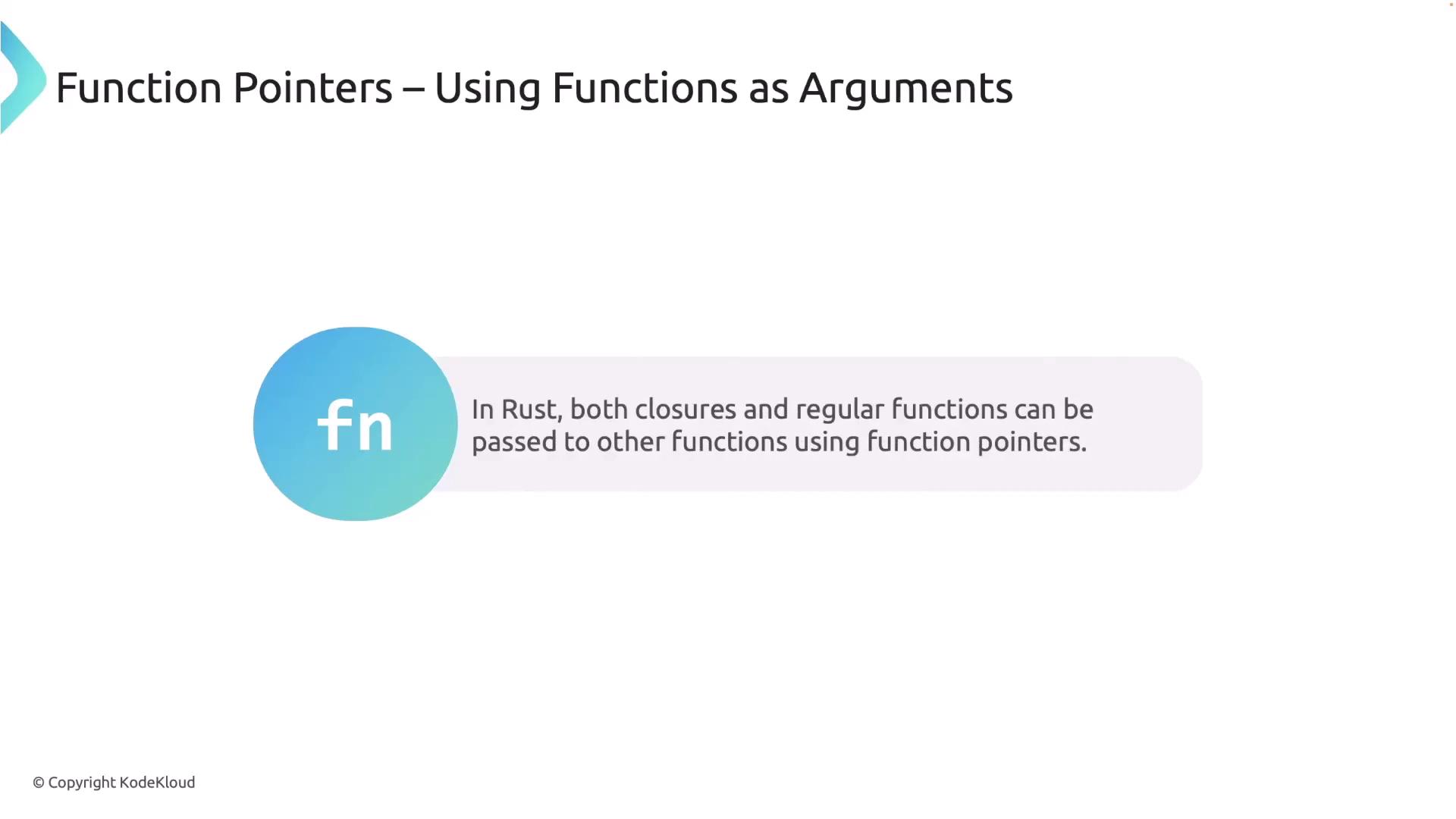Function Pointers: Using Functions as Arguments
Often, you might find the need to pass a function as an argument in your code. In Rust, this is done using function pointers, represented by the lowercasefn type. Function pointers enable you to use regular functions just like closures.
Consider a common scenario: you have a function that calculates the square of a number and another function that applies an operation three times to a given value. With function pointers, you can seamlessly pass the square function as an argument to the other function, avoiding repetitive code.

square function returns the square of a number. The apply_three_times function accepts a function pointer f (which takes an i32 and returns an i32) along with a value, applies f to that value three times, and then sums the results. Calling apply_three_times(square, 2) computes the square of 2 (i.e., 4) three times and sums them up, resulting in 12.
Choosing function pointers is a great way to avoid code duplication when the same functionality is needed in multiple contexts.
Closures Versus Functions
While functions and closures can accomplish similar tasks, closures offer extra flexibility by capturing variables from their surrounding environment. This feature makes closures particularly useful for inline transformations and quick operations. For example, consider using a closure with themap method on a vector:
map function converts each number into a formatted string. The resulting output is:
map:
When deciding between closures and regular functions, opt for closures if the transformation is simple and used only once. Use regular functions to promote code reuse and enhance maintainability.
Key Takeaways
By mastering the use of function pointers and closures, you can significantly enhance the flexibility and clarity of your Rust programs. Remember:- Use function pointers for passing simple, reusable functions as arguments.
- Leverage closures when you need to capture environmental variables for inline data transformations.